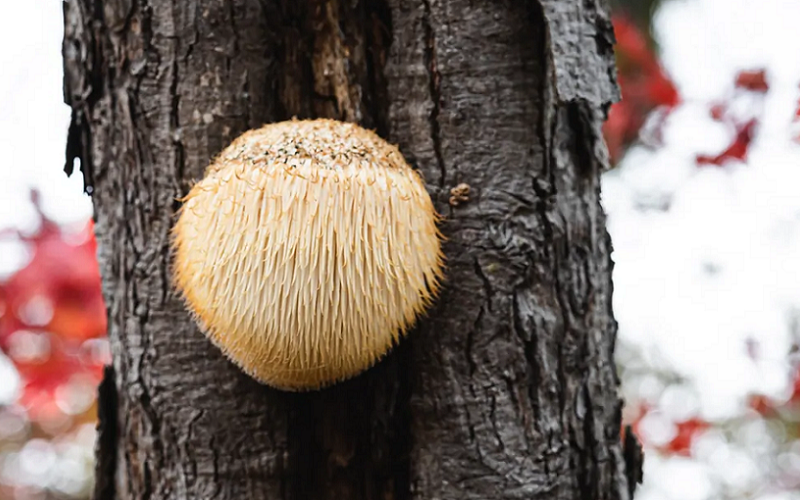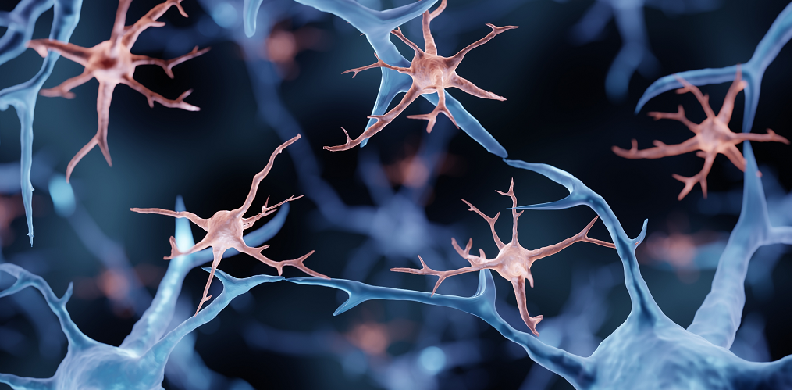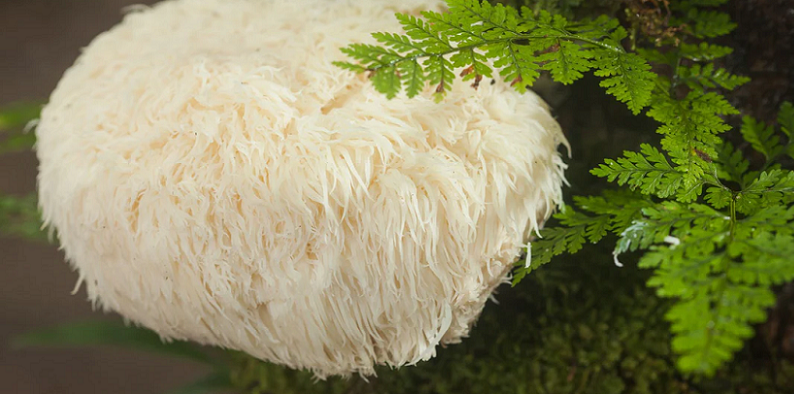
In the quest for optimal brain health and cognitive enhancement, the realm of nootropics offers a myriad of natural and synthetic options. Among these, one natural wonder stands out for its remarkable effects on brain cell regeneration: the Lion’s Mane Mushroom. This fascinating fungus, with its long history in Eastern medicine, has recently captivated the attention of scientists and health enthusiasts alike. Here we explore the science behind Lion’s Mane Mushroom and its extraordinary ability to support brain health – particularly neurogenesis the potential in combating neurodegenerative diseases.
Contents
Historical Context of Lion’s Mane Mushroom
The Lion’s Mane Mushroom, scientifically known as Hericium erinaceus, is not a newfound element in the world of health and medicine. Its roots extend deep into ancient practices, particularly in Eastern cultures, where it has been revered for centuries.
Traditional Use of Lion’s Mane Mushroom in Eastern Medicine
Long before its popularity in the West, Lion’s Mane Mushroom was a cornerstone in traditional Chinese medicine. It was commonly used for its medicinal properties, believed to enhance brain function, promote longevity, and treat a range of ailments.
Ancient texts and practices highlight its use as a tonic for overall well-being, with particular emphasis on its ability to improve memory and cognitive abilities. This historical reverence sets a foundation for understanding how Lion’s Mane has been valued through the ages.
Evolution of Lion’s Mane Mushroom Popularity in Western Health Discourses
In the Western world, the Lion’s Mane Mushroom remained relatively unknown until recent decades. Its introduction into Western health discussions marked a significant shift, as researchers began to explore its potential through a scientific lens. This transition from Eastern traditional medicine to Western scientific research represents a fascinating journey, bridging ancient wisdom with modern science. Today, Lion’s Mane is not just a subject of historical interest but also a focus of cutting-edge research, highlighting its potential in the realm of cognitive health and beyond.

Understanding Brain Cell Regeneration
Before getting into the specific effects of Lion’s Mane Mushroom on brain health, it’s essential to understand the underlying process it influences: brain cell regeneration. This complex biological process is pivotal for cognitive function and overall brain health.
Basics of Neurogenesis
Neurogenesis, the process of generating new neurons, is a critical aspect of brain health. Contrary to the long-held belief that adults cannot produce new brain cells, recent research has shown that neurogenesis continues throughout life, particularly in the hippocampus, a region crucial for learning and memory. This ongoing generation of neurons plays a vital role in cognitive flexibility, memory formation, and the overall resilience of the brain’s neural networks [1].
Factors Influencing Brain Cell Regeneration
Various factors can impact the rate and efficiency of neurogenesis. These include lifestyle choices like diet, exercise, and sleep, as well as environmental factors such as stress. Additionally, certain substances, both natural and synthetic, have been found to influence this process. Understanding these factors is vital in exploring how specific interventions, like the use of Lion’s Mane Mushroom, can support or enhance brain cell regeneration.
The Aging Brain and Cognitive Decline
As we age, the rate of neurogenesis naturally declines, which can contribute to decreased cognitive abilities and a higher risk of neurodegenerative diseases. This reduction in brain cell regeneration is a significant factor in the aging process, highlighting the importance of finding ways to support and maintain neurogenesis in older adults. The potential of natural supplements like Lion’s Mane Mushroom to counteract this decline is a key area of interest for researchers and health enthusiasts alike.

The Science Behind Lion’s Mane Mushroom
With a grasp of the historical context and an understanding of brain cell regeneration, we can now focus on the fascinating science behind Lion’s Mane Mushroom.
Key Components and Nutrients of Lion’s Mane
Lion’s Mane Mushroom is packed with bioactive substances that contribute to its health benefits. Two significant compounds, hericenones and erinacines, are known for their ability to stimulate the production of nerve growth factor (NGF), a protein crucial for the growth, maintenance, and survival of neurons [2].
Additionally, the mushroom contains antioxidants and beta-glucans, which support the immune system and may have anti-inflammatory properties. These components work synergistically to promote overall brain health and resilience.
Lion’s Mane Mushroom Mechanism of Action in the Brain
The unique compounds in Lion’s Mane Mushroom, particularly hericenones and erinacines, play a critical role in its effects on the brain. They have been shown to cross the blood-brain barrier, a significant feat for any compound, allowing them to directly interact with brain cells.
Once in the brain, they stimulate NGF production, which is essential for neurogenesis and the repair of damaged neural cells. This ability to directly influence brain health at a cellular level is what sets Lion’s Mane apart as a potent nootropic [3].
Review of Relevant Scientific Studies Involving Lion’s Mane Mushroom
Several studies have highlighted the cognitive-enhancing effects of Lion’s Mane Mushroom. Research has shown improvements in memory and cognitive function in both animal models and human trials, particularly in older adults.
Studies also suggest potential neuroprotective effects, making it a subject of interest for research into neurodegenerative diseases like Alzheimer’s and Parkinson’s. While more extensive clinical trials are needed to fully understand its capabilities and limitations, the existing research provides a promising insight into the potential of Lion’s Mane in cognitive health.
Lion’s Mane and Brain Cell Regeneration
Building on our understanding of the science behind Lion’s Mane Mushroom, we now turn to its specific effects on brain cell regeneration. This natural supplement has garnered significant interest for its potential to enhance neurogenesis and support cognitive health.
Lion’s Mane Enhances Neurogenesis
Lion’s Mane Mushroom’s ability to stimulate the production of nerve growth factor (NGF) is central to its role in enhancing neurogenesis. NGF is vital for the growth and survival of neurons, and its increased production can lead to the regeneration of brain cells [4].
This regenerative capacity is particularly beneficial in aging populations, where the natural decline in neurogenesis contributes to cognitive decline. By promoting the formation of new neurons, Lion’s Mane offers a natural way to maintain and improve cognitive functions such as learning, memory, and overall brain plasticity.
Neuroprotective Properties of Lion’s Mane
Apart from stimulating neurogenesis, Lion’s Mane Mushroom also exhibits neuroprotective properties. This means it not only helps in generating new brain cells but also protects existing ones from damage. This dual action is particularly valuable in the context of neurodegenerative diseases, where neuron damage and loss are key concerns. The antioxidants present in Lion’s Mane help combat oxidative stress, a factor often implicated in neurological conditions, thereby contributing to the overall health and resilience of the brain [5].
Lion’s Mane Mushroom’s Potential in Treating Neurodegenerative Diseases
Given its neurogenic and neuroprotective effects, Lion’s Mane Mushroom holds potential in the treatment and management of neurodegenerative diseases. Conditions such as Alzheimer’s and Parkinson’s disease, which are characterized by the progressive loss of neurons, might benefit from the regenerative and protective qualities of Lion’s Mane. While research in this area is still ongoing, early studies and clinical trials suggest that supplements containing Lion’s Mane may help slow the progression of these diseases and improve the quality of life for those affected.
References
[1] Lion’s Mane Mushroom May Boost Brain Cell Growth and Memory
[2] Improving memory: Lion’s mane mushrooms may double neuron growth
[3] Neurotrophic properties of the Lion’s mane medicinal mushroom, Hericium erinaceus (Higher Basidiomycetes)
[4] Mushrooms Magnify Memory by Boosting Nerve Growth
[5] Lion’s mane mushroom shows promise in boosting brain cell growth

